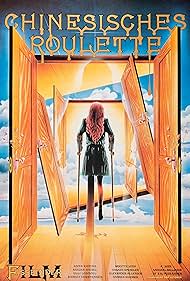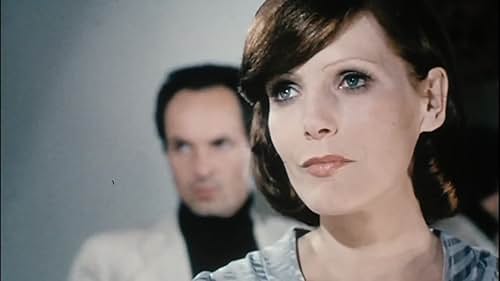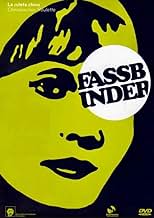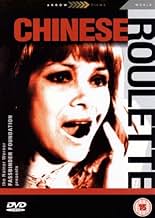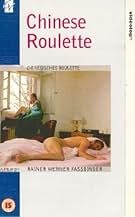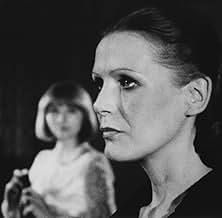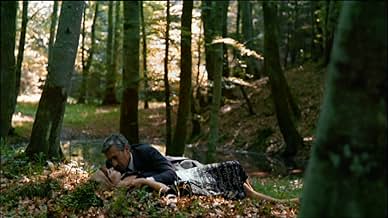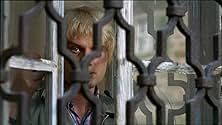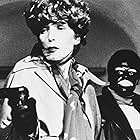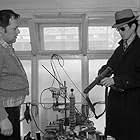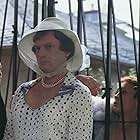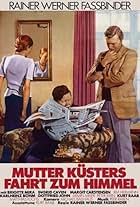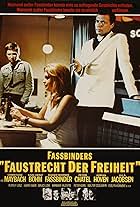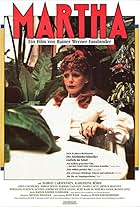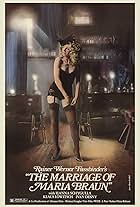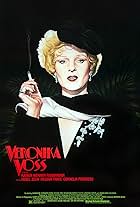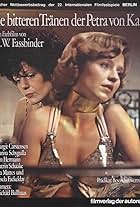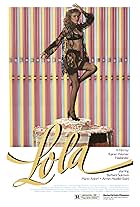Believing that her parents' longtime extramarital affairs caused her physical ailments, a teenage cripple arranges for both sets of adulterers to unexpectedly meet at a country home in this Rainer Werner Fassbinder thriller. The film is gloriously photographed by Michael Ballhaus, with the camera giddily spinning around to reflect nervousness when the four adulterers first meet, and the very deliberate framing (some actors turned to faced the camera; others not) throughout adds tension. The juice of the film comes from both the girl's initially elusive motives and the sense of emotions about to explode; at one point, her own mother almost shoots her through an open window. Oddly, the film never explores why the daughter has more hostility towards her mother (and vice versa) than her father, but this aside, the only significantly underwhelming aspect of the film is the title game. Nowhere near as dangerous as Russian roulette on the surface, Chinese roulette -- a game that seems to only exist in the film's universe -- is merely a guessing game of sorts, albeit one in which deep resentment is able to surface. Whatever the case, the film is a surprisingly tense ride considering the minimal sets and small cast. It also offers food for thought in terms of who is to blame and whether indeed the girl's parents brought the situation upon themselves through emotionally (if maybe not physically) injuring their daughter.
